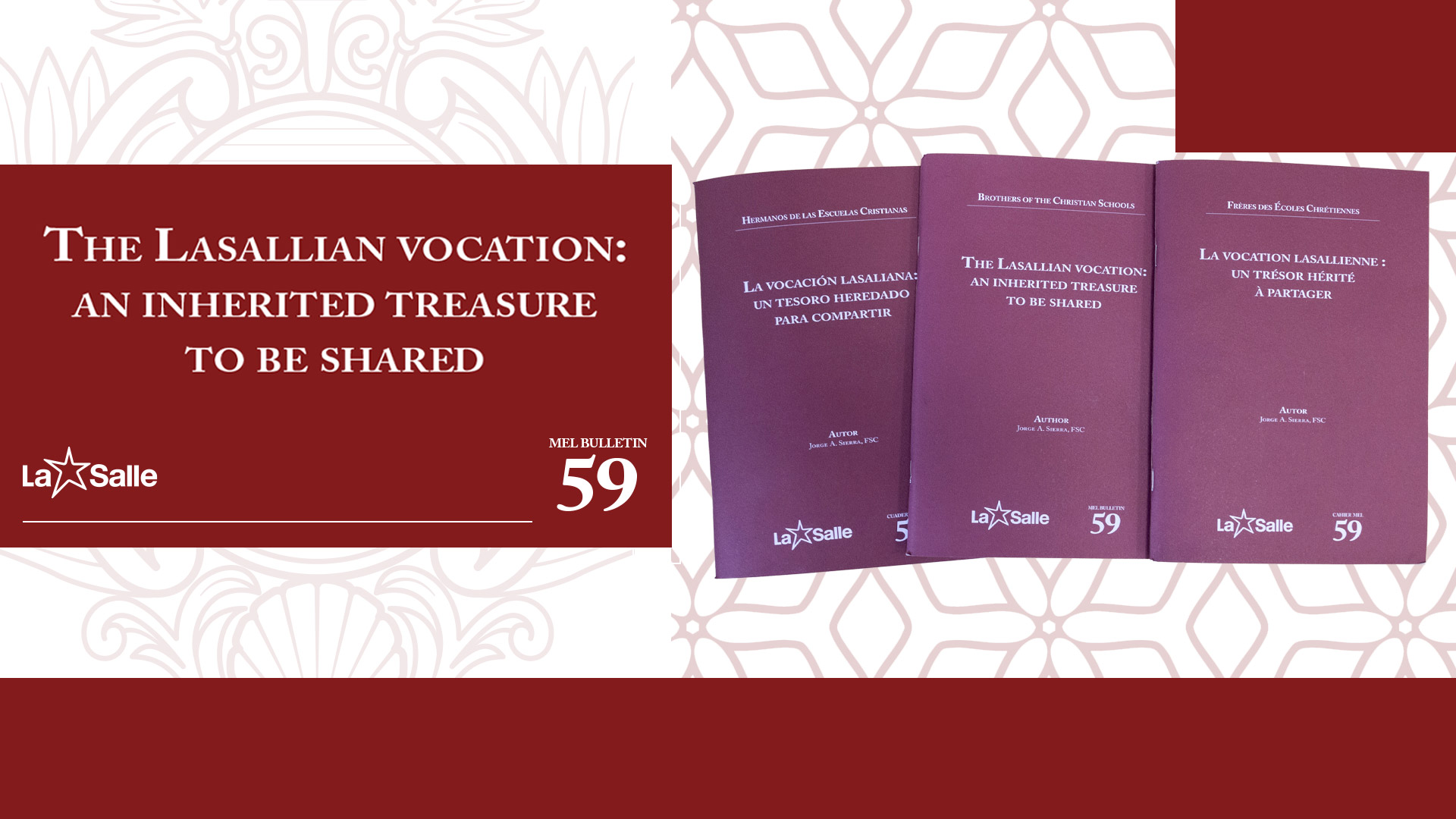What is a vocation? Are there different vocations in the Church? Is it doomed to oblivion and failure to speak of vocations today? Is the experience of the Christian teacher a vocational journey? What is the “vocational” part in the Lasallian heritage? What kind of pastoral ministry of vocations does our society need? These and many other similar questions can be a motivation to re-read the anthropological proposal of Christianity and recover sometimes unexplicit keys in the mission of evangelization.
On February 9, 2020, the General Council of the Brothers of Christian Schools published the significant Circular 475, titled From Hope to Commitment: Understanding Lasallian Vocations. After a long period of reflection and writing, in which many Lasallians were involved, the essentials for building a Lasallian culture of vocations in the 21st century are presented in this document. The aim is to help everyone to get to know the Lasallian commitment and its different ways of life, both for the Association and for the consecrated life as Brothers and Sisters. It is a call to regain the enthusiasm that the future is not limited by numbers or successes and failures and, at the same time, an invitation for all Lasallians, from their specific services, to commit themselves to pastoral ministry of vocations.
From the essence of the Lasallian heritage, we can describe the “Lasallian vocation” as a way of following Jesus inspired by the vital itinerary of Saint John Baptist de La Salle and many other Brothers and Lasallians throughout history, a full “vocation” that, attentive to the needs of the world, listens to the call of God and is committed to the service of his Kingdom in favour of those most in need, through education.
This paper is composed of three parts. The first section intends to define the Christian vocation, an opportunity to highlight the essential aspects of theological anthropology. The second section reviews the calls to shared communion and mission, which are made explicit in the different ways of life that have developed in the Church: laity, ordained ministry and consecrated life. Finally, in the third part the foundations of the Christian vocation are formulated from the Lasallian heritage, with an invitation to construct, in a daily commitment, a new “culture of vocations”.



